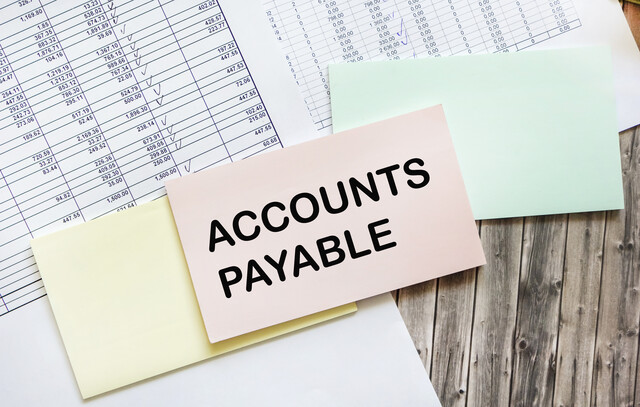Modern Travel
The definition of travel is, "to go on a trip or journey � especially to a place far away." Chances are excellent your employer will require assistance with travel arrangements at some point during your tenure, so it's advisable to have more than a brief acquaintance with coordinating travel.
When we think of travel, what form of travel first comes to mind? Here in the 21st century, most of us immediately think, air travel; especially when speaking of business travel, a train or sea trip isn't anyone's first thought!
There may be times when your employer wishes to take a more leisurely trip or host a gathering at a unique location; the planning for that type of excursion is different from a business trip via air travel, so we'll briefly discuss alternative types of travel, as well.
The Nuances of Air Travel
If you aren't much of a traveler, you may be unaware of the more subtle things that can make a long business trip an easy excursion or a nightmare of epic proportions. For example, what looks like a reasonable layover on a computer screen might actually be too short (or too long), based on particular airports and connecting flights selected. (Most frequent travelers will tell you the shorter the layover, the greater the chance the departure gate for your connecting flight is at the furthest point from your arrival gate!)
After the terrorist attacks on the United States on September 11, 2001, airport safety procedures changed dramatically. Security became much tighter, and search and screening procedures intensified. Although airport security procedures have been modified and refined since then, air travel is still more challenging and time-consuming than before 9-11.
Some modern travelers have adapted to the necessary routines surrounding airline transport, but for others, particularly those who travel infrequently, a trip to the airport can be incredibly confusing and stressful. Airport personnel aren't necessarily known for their patience in this day and age, especially considering the wage cuts and short staffing issues some employees face. And travelers aren't always on their best behavior either! No matter who you are, a trip to the airport can be a challenge.
Due to the seemingly ever-changing nature and often varying procedures between airports, it is advisable to check airport and airline procedures prior to any air trip your employer plans to take. This includes measurements and requirements regarding carry-on luggage � if carry-ons are allowed at all. Some smaller aircraft have very strict weight requirements; do not misrepresent the weight of your bag, or of yourself for that matter, if asked by airline personnel.
Ensure your boss arrives at the airport in plenty of time. Even though your boss will be well prepared for the trip (thanks to you, the dependable and talented personal assistant!), others may not be. Delays and errors may occur despite the best preparations, so being early is the best policy.
It also helps to arrange certain "analog" or offline activities for your employer to engage in during any "down time" during the trip. Analog is defined as "of or relating to a device or process in which data is represented by physical quantities that change continuously" (Merriam-Webster). We're using the term "analog" here to refer to work done without assistance of virtual media, i.e. working with paper or "hard" copies.
Busy employers often feel they have no time to work with hard copy documents or media, but sometimes there is no "virtual" option available. For example, there may be original documents needing review and/or signature. If your busy boss has no choice but to sit in one place for a while, a wise PA will take advantage of the opportunity and supply such work or documents, along with notes or instructions on each document, for their employer's perusal.
If you choose this option and need the documents returned (as in the case of a signed contract, for example), arrange with the hotel your employer will stay in, and/or provide a pre-paid, pre-addressed envelope for return of the document(s). In the case of the second option alone, ensure the drop-off point for the item is easily accessible and convenient for your boss.
Frequent flyers usually know many other tips and tricks regarding particular airlines or airports, as well as having multiple frequent flyer discounts from various travel businesses. Such knowledge can take some time and actual experience to acquire. If you aren't a travel expert, for complex trips you may wish to hire someone who is � a professional travel agent.
Booking on a Website vs. Using a Travel Agent
With all the websites and search engines on the Internet dedicated to finding and booking cheap and easy travel, why would a personal assistant need assistance with travel arrangements?
Travel websites can be great for arranging simple trips, but when it comes to more complicated itineraries, online booking becomes murky and confusing. Believe it or not, travel websites often make finding options more difficult, and there are so many sites to choose from, a busy PA can waste hours searching for the right combination of flights and amenities.
Spending hours wading through online data not only wastes your valuable time, you'll probably wind up feeling stressed out, too; it can take anywhere from two to five hours of online searching to plan a multi-destination or international trip. Additionally, the big online agencies tend to group flights and accommodations in packages they think work best, which might not be what you need � or want.
A travel agent can navigate through such murk, and the cost for their valuable expertise is not as high as you might imagine. Fees for booking with an agent run around $20-$100 depending on the trip. Hiring an agent is an investment that benefits both you and your boss, since travel agents arrange all the travel details, from transportation, to accommodations, to amenities, for one low fee. Often, the fees are offset by the discount you receive on flight/accommodations by using an agent, and/or agents receive their commission from travel suppliers they do business with.
Thanks to their copious connections and "group purchasing power," travel agents score the best travel deals, and they have the ability to make changes in reservations unavailable to online/"layman" customers. Agents have access to package deals not advertised to the general public, and can navigate around emergency travel obstacles, such as flight changes, or the need for a last-minute hotel room. In addition, travel agents typically have a personal database,compiled continually throughout their career, of contacts in all areas of the travel industry. Never underestimate the power of a personal connection!
Since many travel agents are travelers themselves, they often have first-hand experience regarding certain destinations or travel particulars. A good agent will likely have a list of loyal customers who have shared their travel experiences, both good and bad, with the agent, so the agent will have this information to draw upon, as well. That "insider" knowledge can be priceless � the "great" online hotel deal you've found on your own may be due to the fact the hotel parking lot is going to be under renovation during your employer's planned stay!
Speaking of disastrous hotel stays, if you book travel on your own, that is how you'll find yourself if something goes wrong � on your own. A travel agent is your advocate should a hotel be misrepresented, a flight overbooked, or a rental car agency uncooperative. One phone call to your agent, and you can rest assured the issue will be resolved. On your own, a dozen phone calls may be to no avail.
Ocean Travel
Due to the prevalence, lower cost, and speed of air travel, travel by ship is not as common as it once was. While shipboard passage between the UK and U.S., for example, can still be had, it is not necessarily an easy option. It is time-consuming; not only does it take longer to travel by ship than by air, it requires a great deal of research to come up with a workable itinerary. Long-distance sea travel also requires flexibility and patience � you may have to change vessels several times during the voyage, as well as accept less-than-ideal travel arrangements.
Modern Sea voyages are typically planned cruises, where passengers travel to the departure port via air travel (or via car, if they live near the launch site), then embark on the trip. Chances are you won't be responsible for planning many such trips for your employer, but you may be called upon to come up with a clever or unique option for a weekend trip or social gathering, and evening or weekend cruises can be a wonderful option, particularly if your employer resides in or near a popular port-of-call.
Dinner cruises are quite popular, especially in big cities. There are many choices for dinner and event cruises in San Francisco, Seattle, Nashville, San Diego, London, the Hawaiian Islands, and multiple locations in Florida, to name a few. River cruises aboard paddle boats are a unique and leisurely experience, as well. Some companies make ships available for charter for large, private parties, which is ideal for hosting a unique and impressive event.
Train Travel
Travel by rail is more time-consuming than travel by air, but it is still more practical than travel by ship. While ocean travel is primarily used in modern times for transport of goods, rail travel is still a viable people-moving alternative.
There are a surprising number of rail trips available, ranging anywhere from a few hours to a few weeks. For example, in the United States, there are "coast to coast" trips (eastbound and westbound) that include trips to national parks, which last about 14 days, while lunch or dinner tours are available in the Napa Valley of California that last about four hours.
One amazing 21-day vacation advertised online begins aboard a train in Los Angeles, CA, makes several stops at natural wonders along the way, comes to the end of the line in New York City, then continues as travelers board the Queen Mary 2 and embark on a seven-night voyage to the UK.
Basic Travel Preparations
You'll want to tailor the kit to fit your employer's travel style. Does he or she typically take quick, overnight jaunts, or does their typical business trip last several days? If a standard business trip lasts a week, it won't help to have a travel kit containing only enough toiletries for a weekend! Always provide enough for a typical excursion, plus enough for an extra day or two. (Larger containers of toiletry products will need to be packed in "checked" luggage.)
Take into account your boss's preferred brands, and remember to check, clean, and re-stock the kit after each trip. Pay attention to which items seem to run low more quickly and which items go unused, so you can refine the kit accordingly. You may also include things like over-the-counter medications, tissues, bandage strips, and/or antiseptics your boss might need while traveling. (Don't overdo it though!)
Depending on your employer's preference, either print out a clear itinerary or provide easy access to an electronic itinerary for your boss's journey. Check and note expiration dates of travel documents, such as VISAs or passports. Some employers appreciate a reminder to return important documents to their proper place following an international trip.
Build a file on travel information for your reference. This information will become part of your personal database. Your "travel info" file should include the following information:
-
Your employer's full legal name;
-
Your employer's emergency contact information;
-
Contact information for your travel agent and/or other travel contacts;
-
Copies of cards/numbers for all travel "memberships," such as hotels, airlines, car rentals, limo services, restaurant discounts, etc.;
-
Any notes, positive or negative, regarding specifics of travel arrangements and/or preferences;
-
A copy of any current itinerary (to be removed when your boss returns);
-
All notes and information regarding upcoming trips;
-
Any other tips or tricks you've acquired.
Unless your employer prefers to hail a cab, you should ensure he or she has transportation arranged for when they arrive at their destination. Keep in touch with your boss while they're on the road, but don't smother them with contact.























